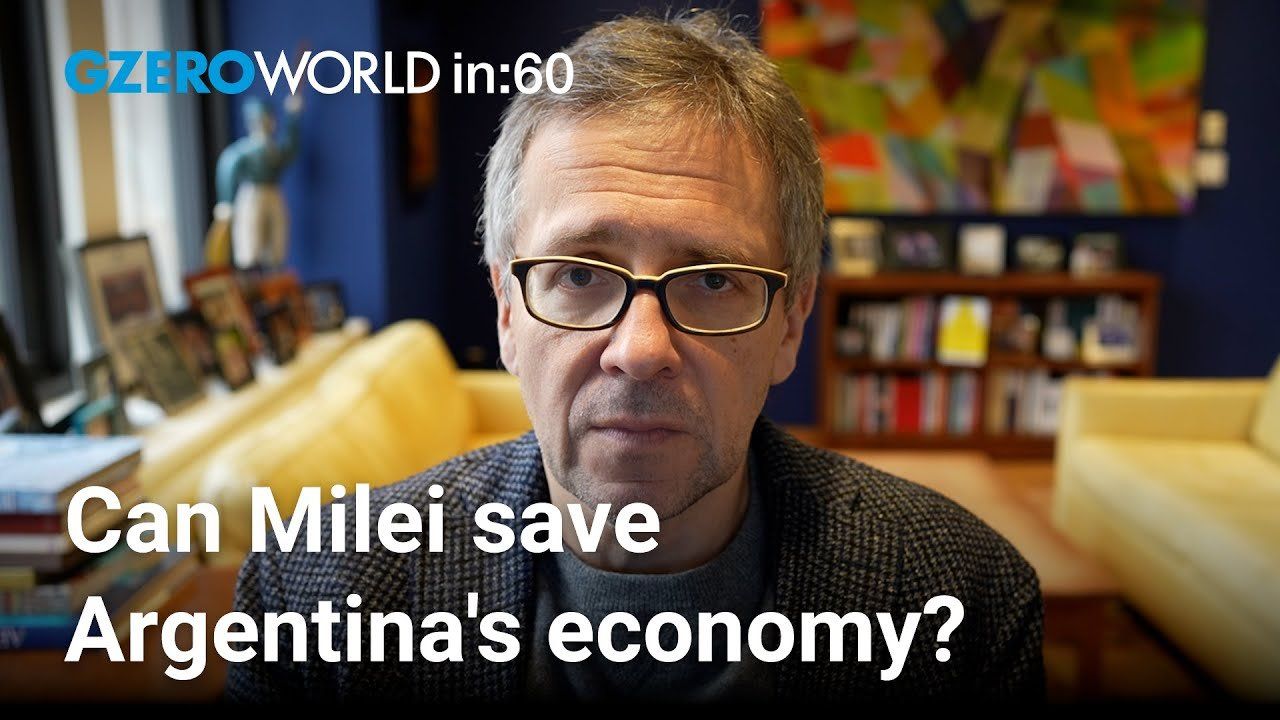Ian Bremmer shares his insights on global politics this week on World In :60.
Will Israel and Hamas finally reach a hostage deal?
We keep hearing about this deal. We're now saying it's imminent, but imminent doesn't mean announced. And, you know, things can go wrong at the last minute still, where the details make it seem like this is going to happen. And what that means is not only we're going to see at least a few dozen Israeli women and children released and some Palestinians, also mostly women, it looks like, released as well from Israel, but that you'll get a temporary ceasefire in three days, five days, and maybe that leads to more diplomacy. It doesn't lead to Israel no longer attacking Hamas. Let's be clear. It's not an actual ceasefire, but it creates more space for people to be talking, especially talking with the Israelis, major leaders in the region. That is something we'll be watching very closely.
What does Javier Milei’s election mean for the future of Argentina?
Well look, it means that the Argentines were absolutely sick of the country falling apart and they were voting between a guy who said he was going to dollarized and get rid of a lot of the government and someone who represented economic policies that have driven the country into a ditch, 140% inflation and massive poverty and, you know, nobody investing and close to a default from the IMF. So, I mean, all of this is a disaster. But Milei, he doesn't have a single governor. He won't have a majority in Congress. He doesn't have an economic team. And his economic plans are mostly vaporware. So, I mean, this is not a country that has the ability to screw around for an awful lot. It's not like the United States in Afghanistan or Iraq. You make mistakes. But the economy is still great. Argentina is not Afghanistan, but they are in serious, serious trouble. And so, yeah, the economy is going to get a lot worse before it gets better. And we'll watch that. It's very expensive to dollarize by the way. And so that means you got to have to print a lot more. I suspect that this is going to be a lot more hardship on the backs of a lot of Argentines. Okay.
Happy Thanksgiving! What world leader has the most to be thankful for this holiday season?
What a hard thing. I mean, all leaders should be thankful because, you know, in principle, they're doing a hell of a lot better because they're representing their people and they should appreciate that and they should take that seriously. And a lot of them don't. But I guess I probably say Modi. Narendra Modi in India, because I mean, he is a very popular leader of the world's largest democracy, 1.4 billion people, the most populous country in the world, is pretty democratic. It's growing economically. It is a leader of the Global South, but it's also with increasingly stable relations with the United States, with Japan and with Europe. And Modi has accomplished a lot of that. So he has a lot to be thankful for. And he is not going anywhere anytime soon. So there's that.
- Dealing with Hamas: What a former hostage negotiator learned ›
- Populism rules the day in Argentina ›
- Who the heck is Javier Milei? ›
- Peronists stage surprise comeback in Argentina ›
- Milei’s victory plunges Argentina into uncharted waters ›
- How Javier Milei is turning Argentina's economy around - GZERO Media ›
More For You
Is Trump permanently redefining the American presidency? On Ian Explains, Ian Bremmer breaks down the political revolution President Trump has launched from the White House.
Most Popular
Think you know what's going on around the world? Here's your chance to prove it.
When they meet at the White House today, Venezuelan opposition leader and Nobel Peace Prize winner María Corina Machado will seek to convince US President Donald Trump that it was a mistake to back Delcy Rodríguez as interim leader of Venezuela.
